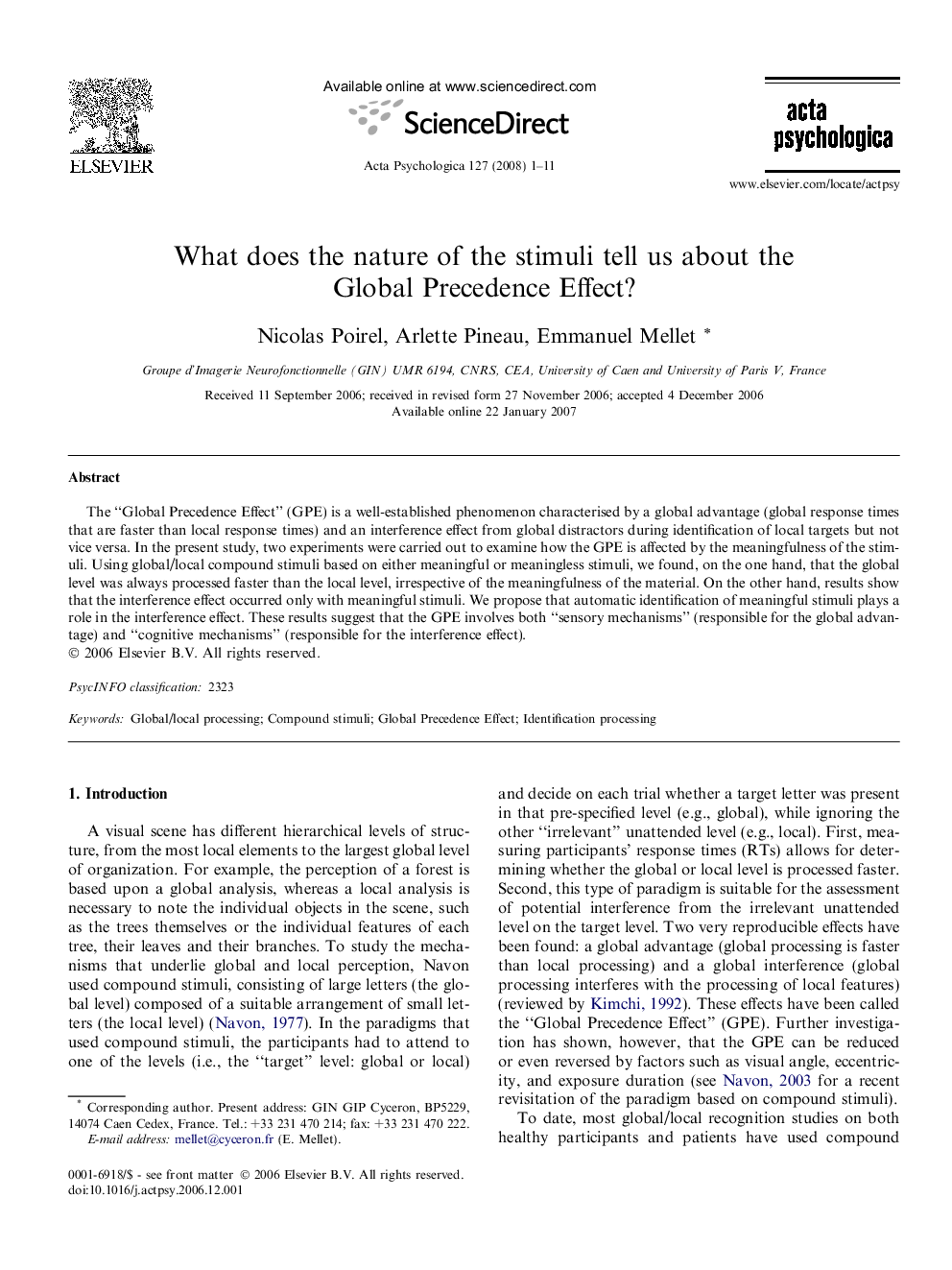| Article ID | Journal | Published Year | Pages | File Type |
|---|---|---|---|---|
| 920542 | Acta Psychologica | 2008 | 11 Pages |
The “Global Precedence Effect” (GPE) is a well-established phenomenon characterised by a global advantage (global response times that are faster than local response times) and an interference effect from global distractors during identification of local targets but not vice versa. In the present study, two experiments were carried out to examine how the GPE is affected by the meaningfulness of the stimuli. Using global/local compound stimuli based on either meaningful or meaningless stimuli, we found, on the one hand, that the global level was always processed faster than the local level, irrespective of the meaningfulness of the material. On the other hand, results show that the interference effect occurred only with meaningful stimuli. We propose that automatic identification of meaningful stimuli plays a role in the interference effect. These results suggest that the GPE involves both “sensory mechanisms” (responsible for the global advantage) and “cognitive mechanisms” (responsible for the interference effect).
